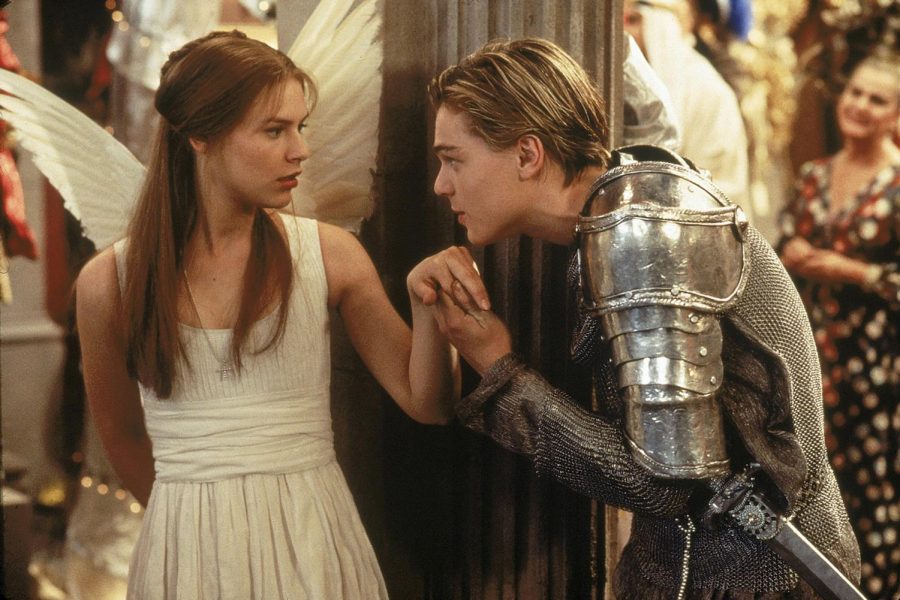Somewhat Informed: Zodrow’s Performing Arts Column; “Ah, There’s the Remote!” How to Get Excited About Shakespeare During Quarantine.
Welcome to The Spectator’s new Performing Arts column!
I’d like to start by offering some films that serve as a great introduction to the works of William Shakespeare. Seattle U students are sitting at home, and do not have much more to do than take their online courses and stream content to fill their free time. For theater fans, this means relying on filmmakers to capture plays.
If there is one playwright that boasts an abundance of filmed versions of his works, it’s Shakespeare. From the BBC Television Shakespeare series, which produced all of his plays, to countless assorted versions online, there is no shortage of ways to obtain some of the greatest dramatic works of the English language relatively easily.
The following is a non-exhaustive list of some introductory films for the Shakespeare novice. To be clear, there are plenty of purists that will tell you these versions cut too much dialogue or mishandle certain complicated themes, but those are also the types of people who make Shakespeare less fun for the rest of us.
Macbeth (2015).
“Macbeth” depicts how a person can lose their humanity in the pursuit of power, as the title character murders the king to take charge of Scotland. Michael Fassbender stars in the 2015 adaptation. This film’s best qualities are also its worst. With a striking decision to portray an implied death on-screen in the movie’s opening moments, and several modifications to the original script to streamline the story, fans of ‘the Scottish play’ often lament over what this “Macbeth” leaves out. However, this also makes for an engrossing two hour watch that does not let the play become bogged down in its own brilliance. Epic and gritty with stellar performances from Marion Cotillard as Lady Macbeth and Michael Fassbender as the titular character, it is a great way to watch one of the most influential plays of Shakespeare. If you want to follow up this watch with a more faithful version, the 2010 BBC telecast starring Patrick Stewart is superb.
Hamlet (1990).
While it may sound crazy now, Mel Gibson was a beloved actor in 1990. His version of Hamlet struck to the core of the character. The portrayal of an angry young man grappling with the murder of his father is compelling. Both vulnerable and filled with rage, he plays off Glen Close—who plays his mother—vibrantly. Hamlet’s confused resentment at his mother for marrying the man who murdered his father shines through in this unabashedly indulgent production. Gibson’s scenes with Helena Bonham Carter as Ophelia are a joy to watch as she displays her depth as a performer. If this version of the film leaves you wanting more, the 1996 version starring and directed by Kenneth Branagh is four hours long and impressively faithful to the source material.
Romeo & Juliet (1996).
Leonardo DiCaprio and Claire Danes star as Romeo and Juliet in this mid-90s classic. Directed by Baz Luhrmann, who has roots in theater, this “Romeo and Juliet” knows how to pull its audience into the frantic energy of young love. Trading swords for guns and tights for jeans, this film allows newcomers to move past the formality that can often alienate general audiences from the works of Shakespeare. Fun, dramatic, and daring, it makes for a great gateway into other more intricate plays.
Othello (1995).
If you are noticing a pattern in the dates of these films, you would be correct in assuming that the 90s produced a surprising number of Shakespeare adaptations. “Othello” may be the best of all of them. The titular character, played by a gorgeous and charismatic Laurence Fishburne, is treated with empathy by the playwright as an African man in inhospitable territory. His masculine excesses are ruthlessly exploited by Iago, one of the most alluring and vicious villains of any dramatic work. Played by Kenneth Branagh, the character jumps off the page and perfectly fits with Fishburne’s performance. The tragedy of a good man being destroyed by a corrupted soul is brought to the screen in heart-wrenching fashion. Some film scholars say that Orson Welles’ 1952 adaptation is the best version of the play brought to film. However, this ignores the glaring fact that the star, Welles himself, is white. His performance is nowhere near as subtle or intelligent as Fishburne’s. For anyone hoping to become acquainted with Shakespeare’s most socially conscious work, the 1995 production of “Othello” is the place to look.
I hope that this list proves useful to those hoping to dive into the works of William Shakespeare during quarantine. The playwright himself wrote during the bubonic plague. As the COVID-19 crisis eclipses the globe, we can look back to Shakespeare as an inspiring example of an individual who achieved theatrical excellence while himself stuck at home. While it is unlikely that a student will write the next great play in the English canon in the coming months, perhaps enjoying Shakespeare will prompt some to use their newfound time at home to enjoy or create something beautiful themselves.












jasmine
May 7, 2020 at 12:14 pm
i think this article really helped me with theater thank you